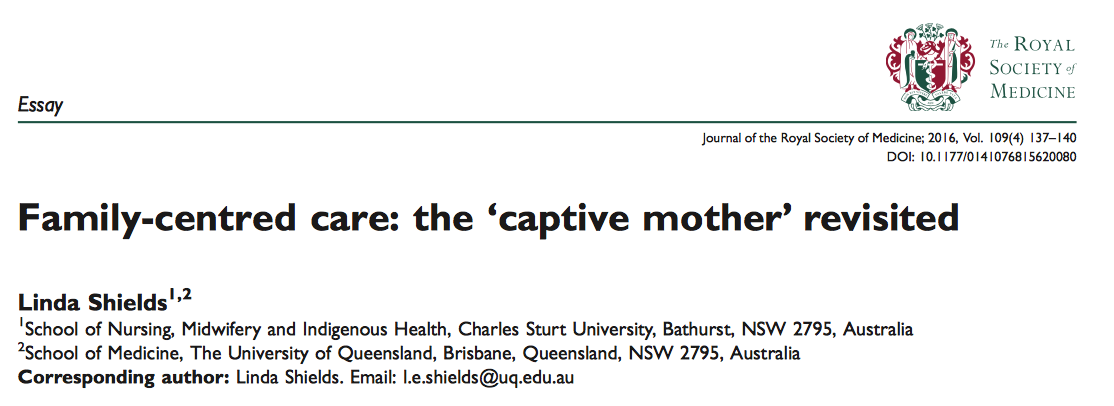This week’s EBN Twitter Chat on Wednesday 4th January between 8-9 pm (UK time) in conjunction with @WeCYPnurses will focus on child & family c
 entred care.
entred care.
The chat wll be lead by Professor Linda Shields (@lshields50), Charles Stuart University, Australia; Professor Philip Darbyshire (@PDarbyshire), global healthcare consultant; Sarah Neil (@SarahNeill7) University of Northampton, UK; and Dr Joanna Smith
 (@josmith175) theUniversity of Leeds, UK.
(@josmith175) theUniversity of Leeds, UK.
Participating in the Twitter chat requires a Twitter account; if you do not have one you can create an account at www.twitter.com. Once you have an account, contributing is straightforward. You can follow the discussion by searching links to #ebnjc, or contribute by creating and sending a tweet (tweets are text messages limited to 140 characters) to @EBNursingBMJ adding #ebnjc (the EBN Twitter chat hash tag) to your tweet, this allows everyone taking part to view your tweets.
Professor Linda Shield’s recent publication (Shields Linda (2016) (Family-centred care: the ‘captive mother’ revisited, Journal of the Royal Society of Medicine; 109; 4: 137-140 (http://jrs.sagepub.com/content/109/4/137.full.pdf+html) revisited Roy Meadow’s acclaimed article ‘The captive mother’ (Arch Dis Child 1969; 44: 362–367), where he eloquently described the “captive mother” who was forced to accompany her school aged child to hospital when in reality they would spend little time together. Family-centered care has evolved since that time is espoused as the dominant philosophy underpinning care in children’s hospitals around the world. We postulate that that although family-centered care is embedded within most health services policies for children, it is largely untested. Evidence suggests problems with the implementation of family-centred care, with some parents feeling resentful that they have to undertake some of their child’s care. We postulate that Meadow may have been right & that expecting a mother (or other carer) should stay with a hospitalized school aged child, we are not operating within the ethos of family-centred care, potentially compromising the care given.
The article is already generating debate: with suggestions that concepts such as the ‘captive patient’ and ‘family-centred care’ are no longer relevant in today’s world of personalised care and offering care delivery choices (http://jrs.sagepub.com/content/109/11/408.1.full). The child must be treated as an individual, with rights & choices having a voice in their cared.
This Twitter chat provides a chance for nurses to discuss their experiences of working with children & families, & identify some of the common challenges of embedding child & family-centred care into practice such as:
- Is family-centred care relevant within contemporary healthcare contexts?
- Does family-centred care marginalise the voice of the child?
- Given that evidence of its effectiveness is not available, is it ethical to continue pushing for family-centred care?
